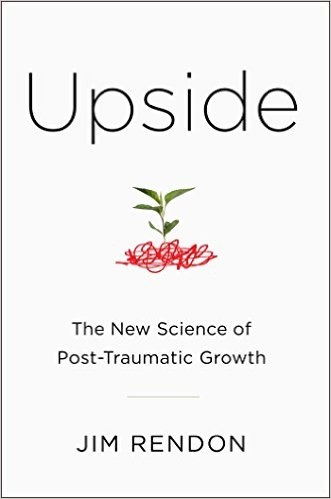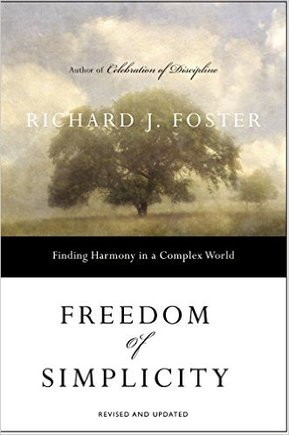 Upside: The New Science of Post-Traumatic Growth
Upside: The New Science of Post-Traumatic Growth by Jim Rendon, Touchstone Books, 2015. Available through
Amazon,
Barnes & Noble, and other retailers. Visit his author website at
jimrendon.com.
Wouldn’t it be sort of obvious that we almost always learn and change the most through difficult times? It is, but if you think about it the heaviest emphasis in the past couple of decades has been on the negative consequences of trauma, especially with the official diagnosis of PTSD—post traumatic stress disorder. And there is no doubt that those who have experienced pain, injury, disaster, and loss often, indeed almost always, suffer from all kinds of lingering issues, from flashbacks to sleeping problems to depression. Yet we know that we also grow from those experiences. As I read this book I realized that there has often been an either/or, all-or-nothing school of thought about trauma. Either I learn and grow, or I am a lesser person than I was. The message of this book is that it can be both. The author, veteran journalist Jim Rendon, begins by telling about his father, a Holocaust survivor. On the one hand, the negative one, his father sleeps poorly and is sometimes consumed by anxiety. On the other hand, the positive one, he is full of humor and compassion. “All that he lived through, all that he survived, all that he lost, left him changed and some of those changes have been truly positive” (xv).
 I had in mind the phrase “Never have an ordinary day,” thinking that it was from some commercial. (Is it? Let me know.) But when I looked it up just to be sure I wasn’t going to get sued for using it, I saw that it’s attributed to Emilie Barnes, the author of a number of books on time and household management, including More Hours in My Day and If Teacups Could Talk. (She also has a website, www.mhimd.com–yes, the initials are for “more hours in my day.”) All this chirpiness and efficiency sounds a little dorky, doesn’t it? She’s really pretty down to earth and practical, though. She’s had to be:
I had in mind the phrase “Never have an ordinary day,” thinking that it was from some commercial. (Is it? Let me know.) But when I looked it up just to be sure I wasn’t going to get sued for using it, I saw that it’s attributed to Emilie Barnes, the author of a number of books on time and household management, including More Hours in My Day and If Teacups Could Talk. (She also has a website, www.mhimd.com–yes, the initials are for “more hours in my day.”) All this chirpiness and efficiency sounds a little dorky, doesn’t it? She’s really pretty down to earth and practical, though. She’s had to be: I had in mind the phrase “Never have an ordinary day,” thinking that it was from some commercial. (Is it? Let me know.) But when I looked it up just to be sure I wasn’t going to get sued for using it, I saw that it’s attributed to Emilie Barnes, the author of a number of books on time and household management, including More Hours in My Day and If Teacups Could Talk. (She also has a website, www.mhimd.com–yes, the initials are for “more hours in my day.”) All this chirpiness and efficiency sounds a little dorky, doesn’t it? She’s really pretty down to earth and practical, though. She’s had to be:
I had in mind the phrase “Never have an ordinary day,” thinking that it was from some commercial. (Is it? Let me know.) But when I looked it up just to be sure I wasn’t going to get sued for using it, I saw that it’s attributed to Emilie Barnes, the author of a number of books on time and household management, including More Hours in My Day and If Teacups Could Talk. (She also has a website, www.mhimd.com–yes, the initials are for “more hours in my day.”) All this chirpiness and efficiency sounds a little dorky, doesn’t it? She’s really pretty down to earth and practical, though. She’s had to be: You’ll remember, of course, that Dorothy in The Wizard of Oz had a pair of ruby slippers that made her very happy because they took her back home. Here in the picture you can see a pair of extremely bright-orange slippers, along with a pattern, two types of fabric, and a black beaded top. So what’s their significance in my life? They’re all items that have to do with what we’re supposed to wear for the
You’ll remember, of course, that Dorothy in The Wizard of Oz had a pair of ruby slippers that made her very happy because they took her back home. Here in the picture you can see a pair of extremely bright-orange slippers, along with a pattern, two types of fabric, and a black beaded top. So what’s their significance in my life? They’re all items that have to do with what we’re supposed to wear for the  I wrote
I wrote  Would you say that a whiteboard schedule could ever be a tool that would show love? I heard a great story along these lines several months ago and have been meaning to post about it, and I’ve been thinking about the struggles I have with my own schedule, and about the
Would you say that a whiteboard schedule could ever be a tool that would show love? I heard a great story along these lines several months ago and have been meaning to post about it, and I’ve been thinking about the struggles I have with my own schedule, and about the 





 It would be great if I would follow my own advice. In the chapter on
It would be great if I would follow my own advice. In the chapter on  “What matters is not what is said, but what is heard.”
“What matters is not what is said, but what is heard.”
